
views
Coping with Negative Emotions

Allow yourself time and space to process your feelings. Give yourself permission to feel whatever you’re feeling after a rejection. Cry if you’re feeling sad. Punch a pillow if you’re feeling angry. It’s perfectly fine to do whatever you need to do to express your emotions as long as you do not take them out on other people or harm yourself in the process. You may find that you don’t feel up to hanging out with friends, engaging in your favorite hobbies, or doing much of anything for a few days, and that is okay. Just don’t allow this to continue for more than a few days. Immersing yourself in something may help you to feel better during this period, such as reading a book, watching a favorite TV show, or playing video games.
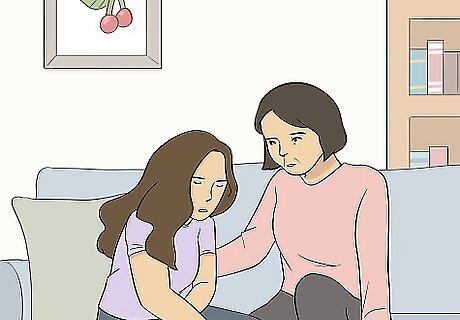
Talk with a trusted friend or family member about how you’re feeling. Telling someone how you’re feeling may help you to feel better by reminding you that you’re not alone and giving you a chance to put your experience and emotions into words. Choose someone who you trust and feel comfortable talking to about your feelings and tell them what happened. For example, you might say something like, “Mom, can we talk? I got rejected by a girl at school and it’s really bothering me.” Or, you might say something like, “Carla, I told my coworker I like him and he said he wasn’t interested, and now he acts really weird around me and I don’t know how to act around him. Help!”

Write about your feelings if you don’t want to talk about them. If there isn’t anyone who you feel comfortable talking with about your emotions or if you simply aren’t ready to talk yet, writing about how you feel may also help you. Write about what happened as if you’re telling a friend or as a diary entry. Some people even start with “Dear diary” to get the ball rolling.Tip: You can use other modes of expression to get your feelings out as well, such as drawing, singing, or dancing.
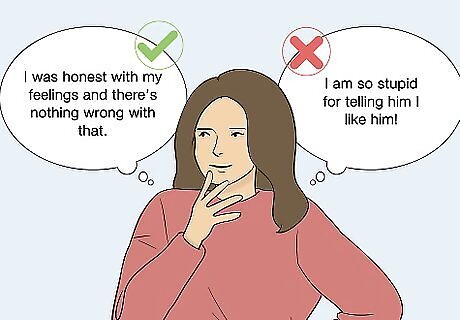
Rephrase negative thoughts to make them more realistic. If you’re getting stuck in negative thought circles, try to become more conscious of your thoughts. When you find yourself blaming or criticizing yourself, change the thought to something more realistic. For example, if you think to yourself, “I am so stupid for telling him I like him!” change it to something like, “I was honest with my feelings and there’s nothing wrong with that.” Or, if you think to yourself, “No one will ever love me!” change it to, “She wasn’t the girl for me, but there are lots of girls I haven’t met yet. I’ll find the one who is meant for me eventually.”
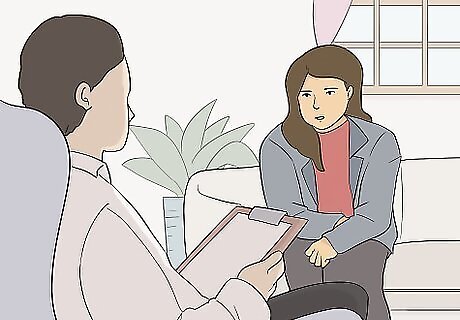
Talk with a therapist if you continue to feel sad or angry. It’s normal to have strong feelings of sadness or anger soon after a rejection, but these feelings should fade over time. If the feelings continue or intensify, find a therapist to talk with about your experience. They can help you to develop tools for coping with your feelings. Try asking your doctor for a referral to a therapist if you’re not sure where to start.
Moving on after a Rejection
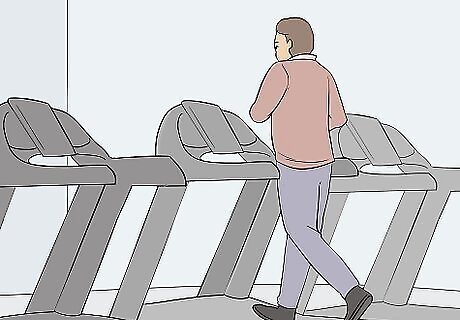
Keep yourself busy to avoid dwelling on the person. Make plans with friends or family, go to the gym, sign up for an extracurricular activity, join a club, or visit a museum. Do whatever you need to do to stay busy after a rejection and this will help to distract you. This may be especially beneficial if the person was a close friend or significant other. You may find yourself with a lot of free time to fill once you’re no longer spending time with them. Try calling up a friend and making plans for the weekend so you will have something fun to look forward to. Or, you could invite your family to play a board game, watch a movie, or bake cookies with you.Tip: Don’t allow yourself to wallow in sadness or fixate on the person or it will be harder to move on. It’s okay to focus on your emotions for a few days, but if it continues any longer, start getting out more and focus on filling up your schedule.

List your positive traits to remind yourself of your worth. Try making a list of what you have to offer as a person and include every little thing you can think of. Then, read over the list daily to remind yourself of your worth. Reflecting on all the reasons why you’re awesome can help you to feel less sad after being rejected. For example, you might include in the list things like your intelligence, good looks, kindness, good sense of humor, and positive attitude.

Identify what you can learn from the experience. Being rejected may seem like a totally negative thing, but it’s actually good in some ways. It means that you are putting yourself out there and living your life to the fullest! You can also learn new things about yourself after a rejection. Some good takeaways from a rejection may include: A better understanding of the type of person you’re attracted to. New skills for communicating with a person you like. Identifying mistakes you might have made and will try not to repeat when you like someone again.

Set a goal for yourself to stay focused on something positive. Having something that you’re working towards may help you to feel happier in general and take your mind off the person who doesn’t like you. Identify a goal that you’d really like to accomplish for yourself and no one else and decide what you can do to work towards it. For example, if you’ve always wanted to learn how to speak French, you might download an app on your phone and commit to using it for 20 minutes every day. Or, if you’ve always wanted to run a marathon, you might start by training to run a 5K, such as by using a couch to 5K program or by joining a runners’ club in your area.
Interacting with the Person
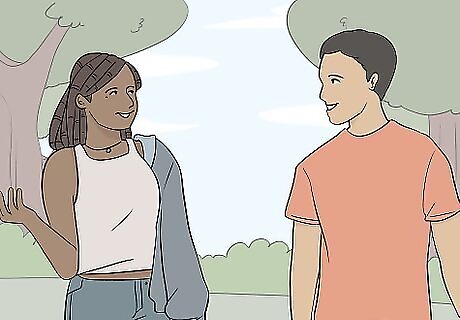
Be kind and friendly if you encounter the person. Seeing the person you like after you’ve found out they don’t like you can be hard, but try not to treat them any differently than you did before. Don’t ignore them, be rude to them, or act sad around them. Smile at them, be kind to them, and engage them in a friendly manner. This is especially important if the person was a close friend or significant other who you see often. Try saying something like, “Hi Michelle! How are you doing?” Or, if you’re not up to chatting with them yet, just smile and say, “Hello!” A quick smile and a wave is also perfectly fine. Tip: If the person is dating someone else, be kind and friendly to that person as well. Being rude to them won’t improve the situation and it may upset the person you like.
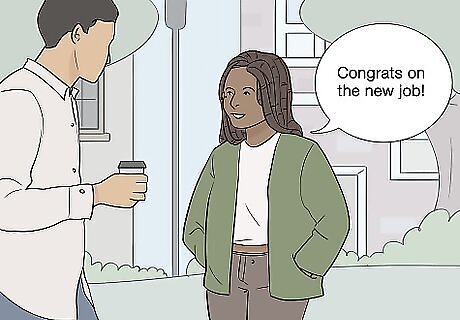
Compliment the person when appropriate. Avoid making comments just to flatter the person, but if they accomplish something big, you might pay them a compliment to be friendly. Avoid making any comments that might make them feel uncomfortable, such as about their body or what you find attractive about them. Try saying something like, “Congratulations on the promotion, Dave!” Or, you might say something like, “Good job on that presentation, Jenny!”
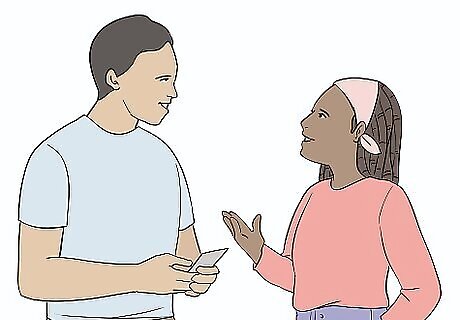
Ask them for suggestions if you want something to talk about with them. Asking people for their opinion is an easy way to engage them and it can also cause them to feel like they have some common ground with you. If you like someone who doesn’t like you in return, you could try getting a conversation going with them by asking them to suggest something, such as a book, podcast, or band you might like. Try saying something like, “Hey, David. Got any good book suggestions? I need something to read over winter break.” Avoid doing this if the person seems like they want space. It’s okay to sit in silence with them if this seems like what they would prefer.

Excuse yourself if it’s difficult for you to be around them. If you’re uncomfortable being around the person, you don’t need to hang around them. It’s fine to excuse yourself when you encounter them or keep your conversations brief. Try making an excuse for why you need to leave if you need to get away. For example, you could say something like, “I wish I could stay and talk, but I have to run! See you around!” Or, you could say something like, “It was nice talking with you. See you around!”



















Comments
0 comment